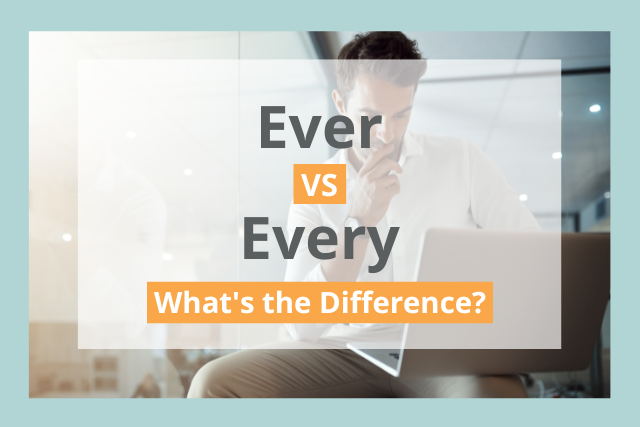
The words ever and every are often confused because they look similar. We'll explain the difference.
Every means all of a countable group, without exception when used as a determiner.
Ever means always when used as an adverb.
A good way to remember the difference is Happily Ever After.
The Difference Between Ever vs Every
Ever and every are easy to confuse because they are just one letter different. Here's how to use them correctly.
Ever is an adverb that means always, at any time, in any way.
Every is a determiner and adjective that means each item in a group, all items. It can also mean complete and entirely.
Is the correct phrase 'better than ever' or 'better than every'?
The correct expression is 'better than ever'. These phrases are often confused because they have a similar spelling.
Should I use 'hang on every word' or 'hang on ever word'?
The correct expression is 'hang on every word'. These phrases are often confused because of their similar spelling.
Is it 'happily ever after' or 'happily every after'?
It's 'happily ever after' because ever is an adverb. These two words are confused because of their similar spelling.
Do I say 'each and ever one' or 'each and every one'?
The correct phrase is 'each and every one' because it is referring to all items. These phrases are often confused because of their similar spelling.
Some synonyms of ever are: of all time, forever, ever so, consistently.
Some synonyms of every are: all, complete, entire.
